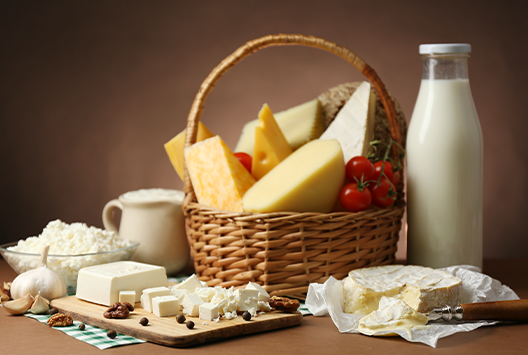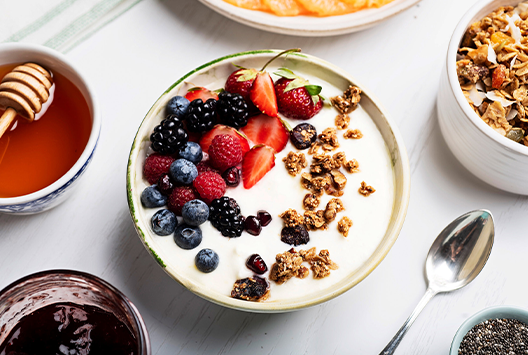
5 Easy Ways to Incorporate Dairy Into Your Healthy Eating Habits
Similar
Dairy is an integral part of a balanced diet, providing essential nutrients like calcium, protein, and vitamins A and D. Unfortunately, many people think of dairy as unhealthy and try their best to avoid it. But with a few simple changes to your diet, you can incorporate dairy into a healthy eating plan.
Here are several ways you can add dairy to your diet:
1. Eat yoghurt for breakfast
Yoghurt is the perfect choice for a nutritious and delicious breakfast. This snack is packed with protein, calcium, and probiotics to help keep your gut healthy. Not to mention, yoghurt is quick and easy to prepare. All you need is a few simple ingredients to start your day right!
You can top your yoghurt with fresh fruit, nuts or granola can for added flavor and nutrition. If you’re looking for a sweet treat, you can add some honey or agave nectar.
2. Use cottage cheese in salads
Cottage cheese is a low-fat, high-protein dairy product that is known for its versatility. You can mix it with anything to create a healthy salad. Not only is cottage cheese low in fat and high in protein, but it is also creamy and mild, which can easily be incorporated into salads, dips, and more.
You can mix cottage cheese in salads with other veggies, fruits, and nuts to create a nutritious, delicious salad. For a heartier salad, mix cottage cheese with roasted vegetables, quinoa, and nuts for a delicious, protein-packed meal.
3. Add milk to your smoothies
Milk is an excellent source of anything and everything that your body needs to be healthy. Adding milk to your smoothies, for example, is an easy way to increase your daily dairy intake and ensure you get all the essential nutrients you need to stay healthy.
Be mindful of the kind of milk you use. Whole milk is usually the best choice as it contains more fat and calories than skim milk, making it more filling and satisfying. However, if you’re trying to cut back on calories or fat, you can opt for skim or low-fat milk instead.
4. Make a dairy-based soup
Dairy-based soups are easy to make and are versatile in their ingredients. Not only are they a great source of protein, but they also provide essential vitamins and minerals. Whether you choose a creamy soup like potato leek soup or a broth-based dish like chicken noodle soup, you can be sure that you are getting plenty of essential nutrients from dairy-based ingredients.
When it comes to ingredients, the possibilities for making a dairy-based soup are endless. Take your pick from milk, cream, yoghurt, cheese, and butter, just to name a few. Each of these adds a unique flavor to the soup and a wealth of nutrients.
5. Treat cheese as a healthy snack
Cheese can be a great, healthy snack that is loved by many people. Besides being rich in protein and calcium, it provides essential minerals and vitamins like zinc, phosphorus, and vitamin A. In addition, eating cheese in moderation can help you meet your dietary needs while providing a delicious snack.
The best part is that cheese can be used in various dishes like salads and sandwiches. It can be served on its own as part of a cheese platter or added to a variety of dishes, such as salads and sandwiches, or even as the main ingredient in a savory casserole.
Get your daily dose of dairy with Baladna
Incorporating dairy into healthy eating habits is an easy and delicious way to improve overall health. Dairy products are a great source of many essential nutrients, including calcium, protein, and B vitamins. Eating dairy, along with a proper diet, can help your body maintain strong bones and teeth, as well as help keep your skin healthy.
Baladna takes pride in being a trusted dairy and beverage company in Qatar. From cheddar cheese to fresh milk, we have everything you need to satisfy your dairy needs. Contact us for more information about our dairy products.



